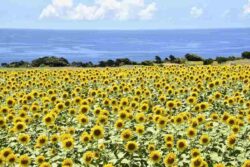Kyoto: Learning about Buddhism through yokai, ghosts
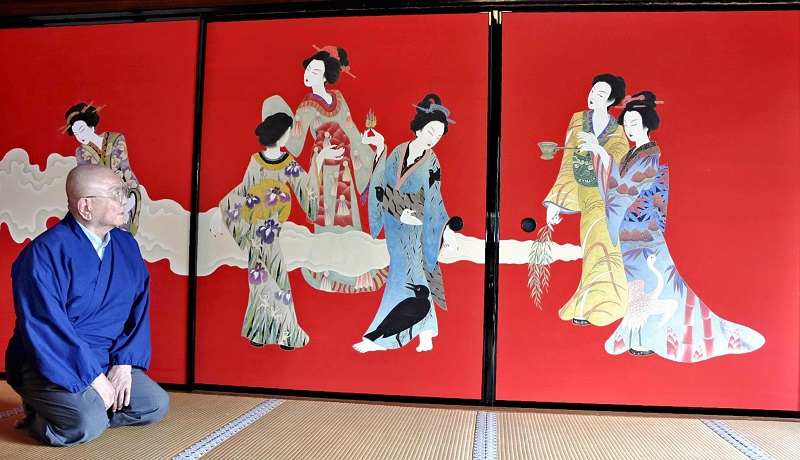
Mysterious women are depicted by Yusen Fujii on 12 fusuma sliding doors.
12:09 JST, August 13, 2022
KYOTO — There is a prestigious temple in a popular tourist area of Kyoto City that transforms itself into a haunted temple in the summer. Ghosts and spiritual yokai are on display in the form of pictures and dolls.
At the exhibition, you can see a doll of a female ghost dressed in white wearing an eerie smile. There are also beautiful but mysterious women depicted on bright red fusuma sliding doors, and a picture scroll that shows lifeless tools with arms, legs and faces parading on streets at night.
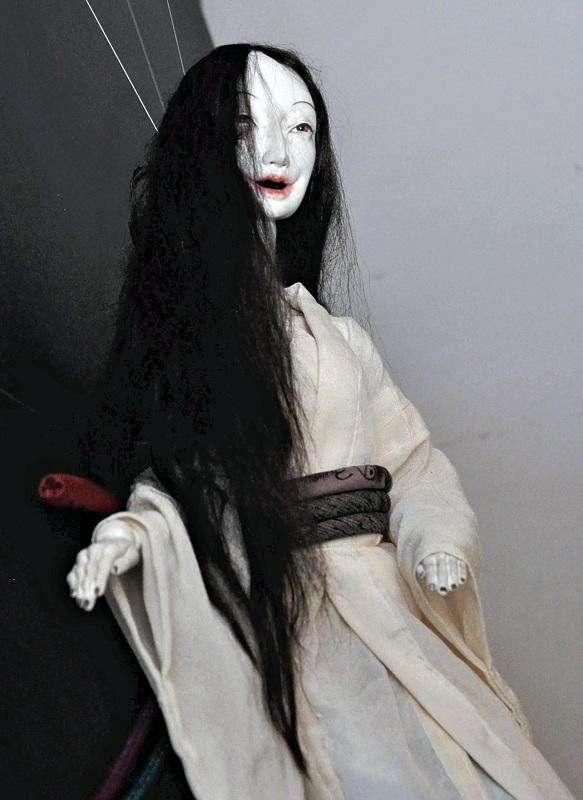
A smiling female ghost doll created by Sadoko Marukido is displayed at Kodaiji temple in Kyoto.
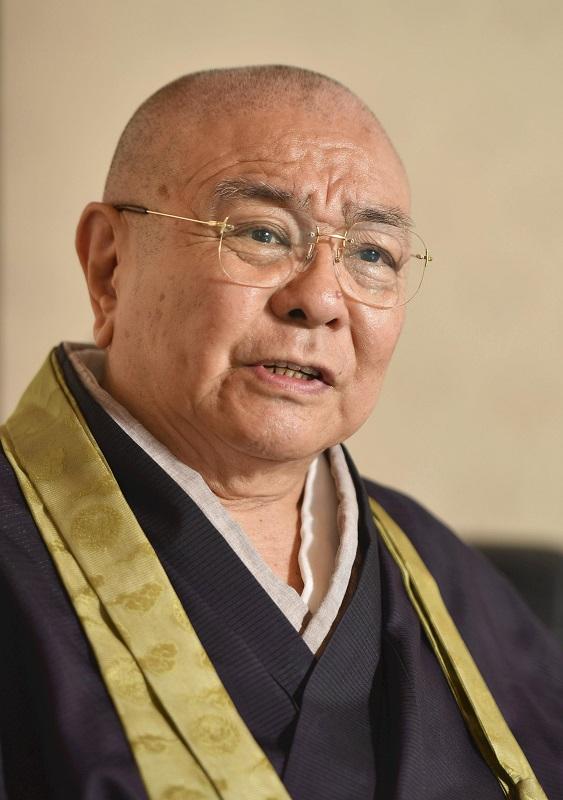
Tensho Goto
Located in Higashiyama Ward, Kodaiji temple was built by Kita no Mandokoro (known as Nene) to pray for the soul of her husband Toyotomi Hideyoshi, a warlord who ruled Japan in the late 16th century. The temple delights visitors with its tranquil visualization of beautiful autumn leaves. “It was a mind-blowing experience,” said a 79-year-old woman from Tokyo, who visited the temple with her granddaughter.
The idea for such an exhibit came from the former head monk of the temple, Tensho Goto, 74. He came up with ideas to familiarize people with Buddhism and the temples, including the introduction of a robot statue of a Buddhist deity. He set his sights on attracting visitors to Kyoto during the summer months when tourist numbers are low, and about 20 years ago added ghosts and yokai.
Border with death
However, there is another reason for showing such spine-chilling exhibits.
Higashiyama Ward is well-known for its many famous temples and shrines, as well as the scenery along the Kamo River. However, it has also been a burial ground since ancient times.
About 800 meters southwest of Kodaiji is Rokudo no Tsuji — the intersection of the six realms. The intersection is believed to have been the entrance to Toribeno, one of the three major burial grounds in Kyoto, so people thought it was a border between this realm and the other. Kodaiji turned its attention to ghosts and yokai partly because Higashiyama is a place with close ties to the dead.
The temple has also begun exhibiting ghost paintings. In 2006, on the 400th anniversary of the temple’s founding, Kodaiji produced a new yokai picture scroll, “Hyakki Yagyo Emaki” (Night parade of 100 demons), to go with the one that has been in the collection for generations, and held an exhibition. It was so successful that it became a regular summer event.
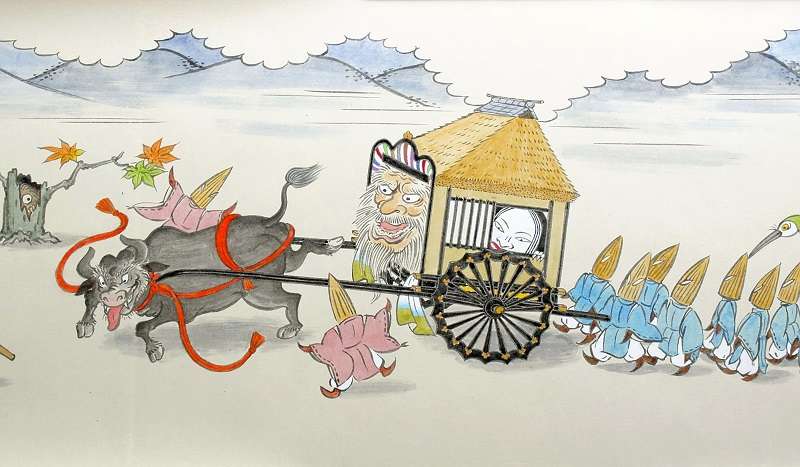
The picture scroll by Yoichiro Tanaka humorously depicts items associated with the temple, such as Nene’s ox carriage, transformed into a yokai.
As well as being scary, the depiction of yokai dwelling in old tools implies that we should treat things with care. Buddhist teachings depicted in an image of hell and paradise tell us that our actions in life determine what happens after death.
“Are you living your life to the fullest? I hope you will come to visit us, think about this while appreciating the ghosts, and experience Buddhism,” Goto said.
How to get there
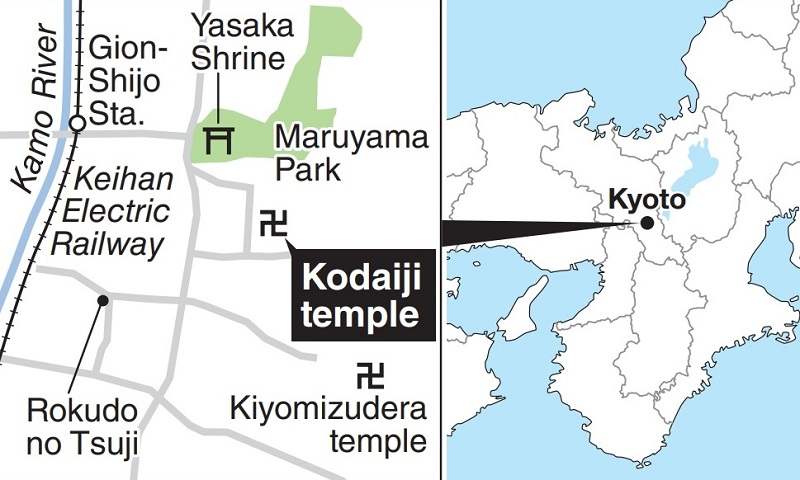
Kodaiji temple is a roughly 15-minute walk from Gion-Shijo Station on the Keihan Electric Railway. It is open from 9 a.m. to 6 p.m. Admission is ¥600 for adults and ¥250 for junior high and high school students. The “Night parade of 100 demons” exhibition will run through Aug. 31. Evening events, in which yokai are projected onto the garden, are being held through Aug. 18.
"Features" POPULAR ARTICLE
JN ACCESS RANKING





